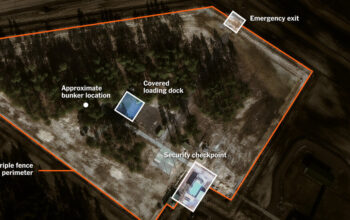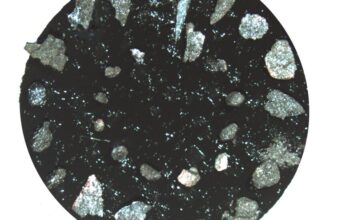
COLOMBO, Sri Lanka — Sri Lanka’s political and economic crisis offered a peculiar tableau Sunday after a day of high drama: The protesters were everywhere, cooking in the prime minister’s garden and even lounging in the president’s bedroom while the leaders were nowhere to be seen.
With President Gotabaya Rajapaksa and the prime minister Ranil Wickremesinge both in hiding after indicating they would resign, it was not clear who was running the country. But it mattered little to the thousands who have flooded into the capital city, Colombo, since Saturday: For months they had felt they were on their own anyway as they queued up for hours — often in vain — for fuel and cooking gas, pared down their meals and scrambled for lifesaving medicine.
Opposition leaders clamored to decipher Mr. Rajapaksa’s intentions.
Would he actually quit on Wednesday, as officials have said, or was his silence a sign that he was gauging his options for a protracted fight? Discussions on who might succeed him were also taking shape, with the speaker of the Parliament viewed as the likely choice as interim president.
But it is clear that whoever takes the reins of government will be walking into a crisis, analysts said, inheriting a crashed economy with no easy solutions and a public that is exhausted and furious.
On Sunday, however, the protesters were busy savoring the apparent victory of being on the brink of bringing down a powerful political dynasty that has ruled the country for much of the past two decades.
The British colonial-era building serving as President Rajapaksa’s official residence has effectively become a free museum. The stream of visitors was so large, with people tightly packed into the halls and stairways, that activists had to put out calls encouraging people to visit the other top compounds they had overrun: the president’s offices and the prime minister’s residence.
“Open to the public,” they painted on the walls of the prime minister’s residence in large, bright letters.
Sri Lanka’s downward spiral has played out against a backdrop of global instability. In the wake of the Russia invasion of Ukraine and the economic sanctions against Moscow that followed, inflation, high energy prices and food shortages have afflicted much of the world. Even before that, the pandemic had disrupted the supply chain.
Sri Lanka was once held up as a potential economic success story that other developing nations could look to, and regional powers have jockeyed for influence over the island nation of 22 million. But its economy has been foundering for months, weighed down by heavy government debt tied to enormous infrastructure projects of questionable utility. The pandemic also wiped out the country’s crucial tourism revenue.
Now, Sri Lanka has become more of a cautionary tale.
On Sunday, as Army guards quietly patrolled the halls of the presidential mansion, some visitors admired the fine art work, the chandeliers, and the elaborately painted ceilings. Others sprawled across the president’s canopied bed, or peeked into the teak armoires or the cabinets in a kitchen where a man cooked rice in a large wok. The damage, if any, seemed minimal, aside from some graffiti urging the president to resign, some plastic bottle debris, several curtains pulled down and a few paintings slightly askew.
The protesters helped pick up trash from the mansion, sweep the floors, water the plants, and even returned about 17 million rupees — nearly $50,000 — they had found at the mansion to the police — after counting the notes.
Deepa Ranawara, her husband and their two children were among those enjoying the festive atmosphere. Not typically activists, the family of four walked 15 miles to and from their home to the mansion on both Saturday and Sunday, leaving Ms. Ranawara struggling to stand because her legs were in such pain.
July 10, 2022, 1:52 p.m. ET
“People have suffered too much,” she said. “Never in my wildest dreams did I think this could happen in Sri Lanka.”
Ms. Ranawara and her husband took out a bank loan two years ago to open a corner store selling the basics — milk, sugar, rice, eggs — to supplement his income painting cars and pay for their daughter’s tutoring as she prepared for all-important final exams. Now, months into Sri Lanka’s worst economic crisis, the couple is struggling to repay the loan and restock the shelves.
“We eat maybe two times a day now,” Ms. Ranawera said. “We don’t even think about fish or meat.”
For more than two years, Mohammad Imran’s two children have been unable to attend school regularly in Colombo. First it was the pandemic. Now, it’s the economic crisis. Fuel has become scarce and the cost of everything from food to transportation has skyrocketed.
Mr. Imran cut expenses like taking his family out to dinner once a week, but wanted to celebrate Eid al-Adha, one of the most important Muslim holidays, with his children on Sunday. He borrowed some gasoline to fuel up his motorcycle and drove Barerah, 11, and Thameem, 5, to the presidential residence.
As he took in the majestic grounds, he said, “To see the kind of lifestyle he had, I feel it’s good for their education.”
The protesters blame President Rajapaksa, and the wider Rajapaksa family who held key positions in his government, for their misery.
In the face of growing unrest over the past year, the Rajapaksas initially denied that the economy was collapsing. As protesters took to the streets in the spring, the president tried to offer incremental compromises, asking his family members to leave their government positions and shuffling his cabinet. Even after the protesters forced his brother, the prime minister Mahinda Rajapaksa, to quit in May, the president continued to defy their calls for his resignation.
Late on Saturday, Mahinda Yapa Abeywardena, the speaker of the Sri Lankan Parliament, a Rajapaksa ally, said the president had told him he would resign on Wednesday. But neither Mr. Rajapaksa nor other officials around him have said so directly.
Security officials and political leaders close to the president have remained tight-lipped about his whereabouts, claiming ignorance or not answering calls. But Colombo was abuzz with rumors that president had shifted to a military base on the outskirts of the capital. Those rumors followed speculation on Saturday, prompted by videos of luggage being rushed to a naval ship and government vehicles speeding toward the airport, that the president had left the city.
In the line of succession set out by Sri Lanka’s Constitution, Mr. Wickremesinghe, the prime minister, would ordinarily become the acting president. Many people believed he was gearing up for just that possibility, but on Saturday, Mr. Wickremesinghe announced his intention to resign as well. The fury against him is such that his private residence was set ablaze.
That leaves Mr. Abeywardena, the 76-year old speaker of Parliament, as the likely interim leader.
“The constitutional position is that if the president resigns and there is no prime minister, the speaker of the Parliament can act as president for a period of one month,” said Jayadeva Uyangoda, a professor of political science at the University of Colombo.
The acting president will have a month to organize the election of a president from among members of Parliament. The winner will complete the two years left in Mr. Rajapaksa’s term before elections are due, analysts said.
Mr. Uyangoda said both the new president and the new prime minister, who will also come from Parliament, would be walking into a “crisis trap.”
While the protests have focused on the long-dominant Rajapaksa family’s abuses, the demonstrators are just as frustrated with the broader political class’s infighting. Organizers want the executive’s powers curbed, and they want more accountability and checks and balances in government.
Mr. Uyangoda said the new leaders would struggle to fulfill any promises because of the daunting economic crisis.
“The entire political class has also lost public trust,” he said. There is a “contradiction between the political class and the politically awakened citizens. Unless this contradiction is resolved constructively, we will continue to see instability.”
Emily Schmall reported from Colombo and Mujib Mashal from New Delhi. Skandha Gunasekara contributed reporting from Colombo.



